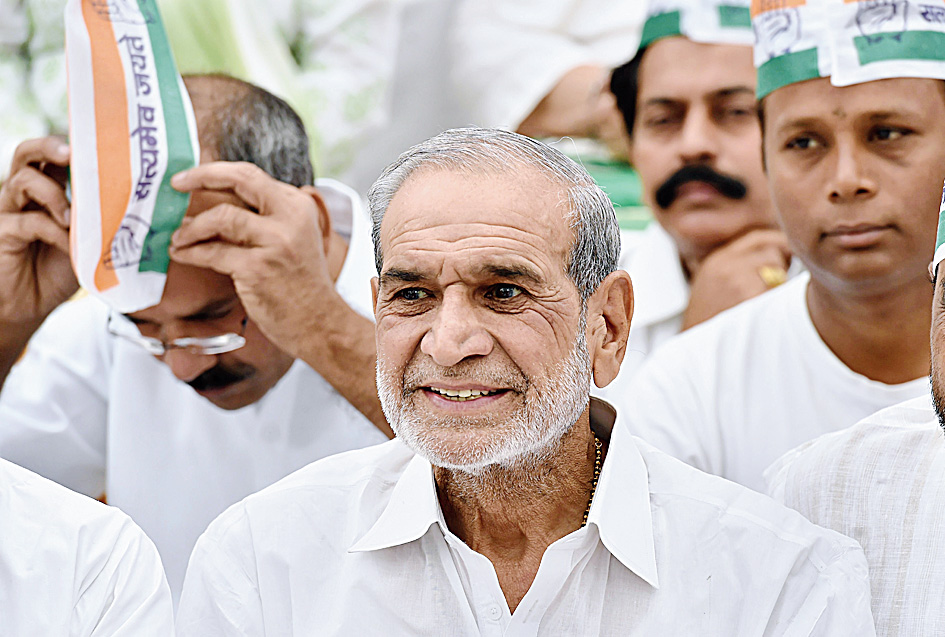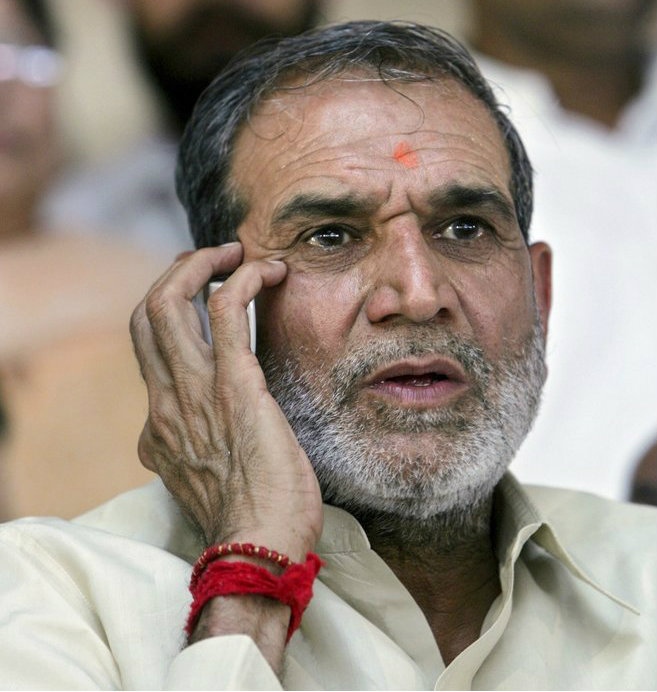Former Congress MP Sajjan Kumar has been sentenced to jail for the “remainder of this natural life” in the first conviction of an influential politician for the anti-Sikh pogrom that followed the assassination of Indira Gandhi in 1984.
While overturning the acquittal of Sajjan, now 73, by a trial court, a division bench of Delhi High Court delivered a scathing indictment of the culture of riot after riot in the country, the political patronage the perpetrators enjoy and the inordinate delay in ensuring accountability.
“As these appeals themselves demonstrate, decades pass by before they can be made answerable. This calls for strengthening the legal system. Neither ‘crimes against humanity’ nor ‘genocide’ is part of our domestic law of crime. This loophole needs to be addressed urgently,” the bench of Justices S. Muralidhar and Vinod Goel said.
The court listed a series of massacres that have haunted the country, pointing to a “familiar pattern”.
“There has been a familiar pattern of mass killings in Mumbai in 1993, in Gujarat in 2002, in Kandhamal, Odisha, in 2008, in Muzaffarnagar in UP in 2013, to name a few. Common to these mass crimes were the targeting of minorities and the attacks spearheaded by the dominant political actors being facilitated by the law enforcement agencies. The criminals responsible for the mass crimes have enjoyed political patronage and managed to evade prosecution and punishment,” the court said.
Sajjan has been found guilty of a role in the killing of five Sikhs by mobs led by Congress politicians and the torching of a gurdwara in southwest Delhi on November 1 and 2, 1984. He stands convicted of criminal conspiracy and abetment of murder, promoting enmity between different groups on grounds of religion, committing acts prejudicial to the maintenance of communal harmony and defiling and destroying the gurdwara.
The court upheld the conviction of five other accused, additionally convicting them of criminal conspiracy. They include a former MLA, a former Congress councillor and a retired navy captain.
Three of the five are in jail. Sajjan and the two others who are not have been asked to surrender by December 31 and not leave the capital. A lawyer for Sajjan suggested the conviction would be contested in the Supreme Court.
According to official estimates, as many as 2,733 Sikhs were killed in Delhi and 586 in other parts of India in the pogrom between November 1 and 4, 1984. So far, 444 accused have been sent to jail — 50 sentenced to life and one to death last month. Six police personnel have been punished for various lapses.
Monday’s judgment was unsparing. “There was an abject failure by the police to investigate the violence which broke out in the aftermath of the assassination of the then Prime Minister Smt. Indira Gandhi…. There was an utter failure to register separate FIRs with respect to the five deaths…. The law-and-order machinery clearly broke down and it was literally a ‘free for all’ situation which persisted. The aftershocks of those atrocities are still being felt,” it said.
“This was an extraordinary case where it was going to be impossible to proceed against A-1 (Sajjan) in the normal scheme of things because there appeared to be ongoing large-scale efforts to suppress the cases against him by not even... registering them. Even if they were registered they were not investigated properly and even the investigations which saw any progress were not carried to the logical end of a charge sheet actually being filed.”
The high court criticised northeast Delhi’s erstwhile district and sessions judge J.R. Aryan for acquitting Sajjan in 2013. “The trial court completely omitted to address the charge of conspiracy despite detailed arguments submitted by the CBI,” the division bench said.
“Disbelieving key witnesses who have remained consistent and spoken clearly about his role is not acceptable. Thus, this court is satisfied that the trial court has appreciated the evidence in this regard on erroneous considerations.”
The high court detailed the “two-pronged strategy” adopted by the attackers. “First was to liquidate all Sikh males and the other was to destroy their residential houses, leaving the women and children utterly destitute. The attack on the… gurdwara was clearly a part of the communal agenda of the perpetrators.”
The court refused to show leniency to Sajjan, saying that organising peace rallies and blood donation camps was not enough.












